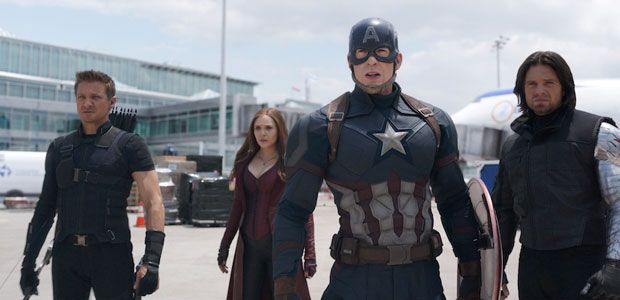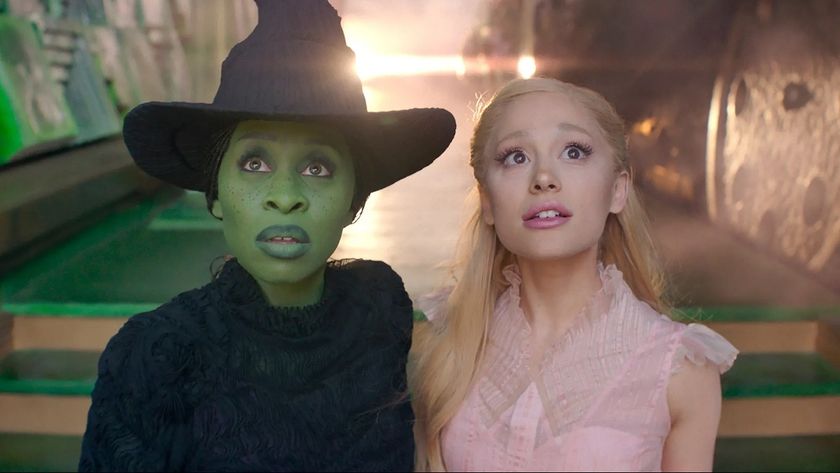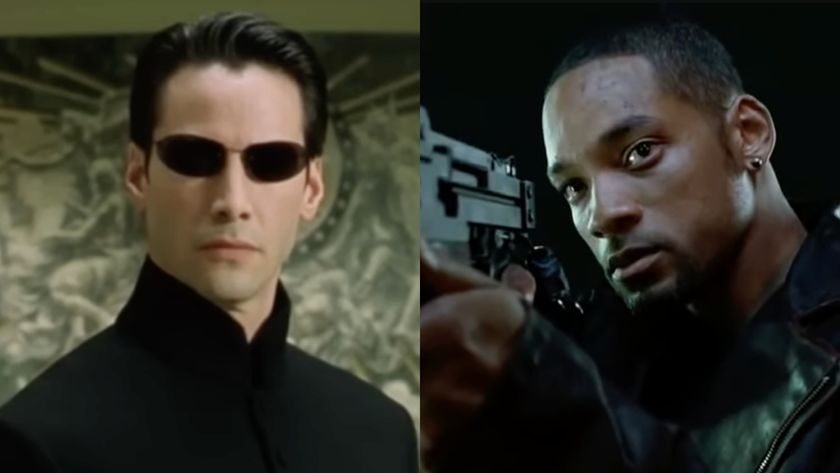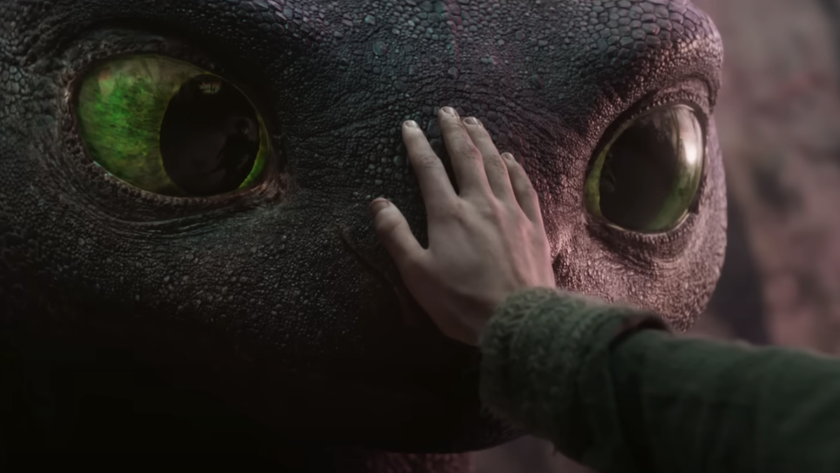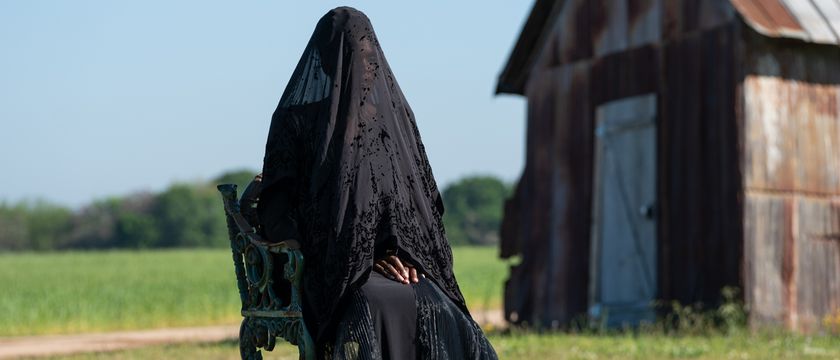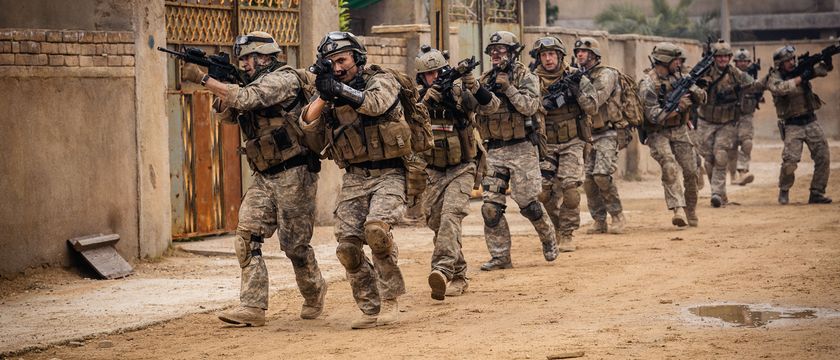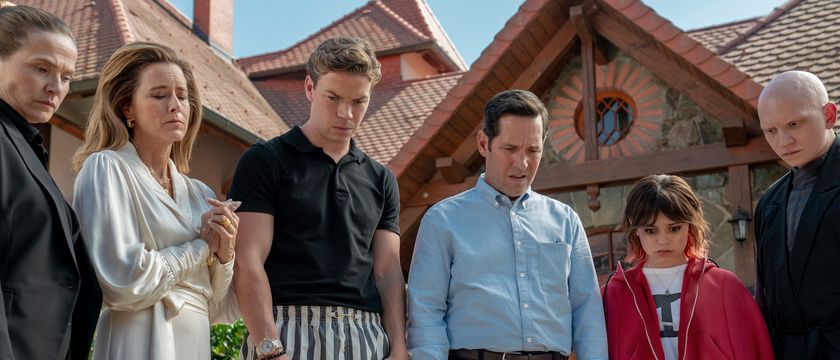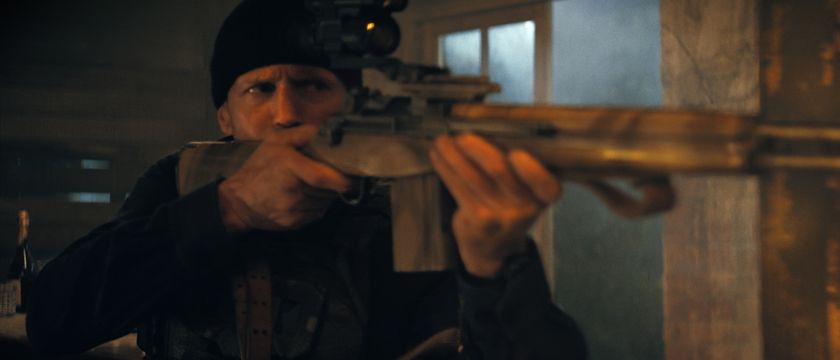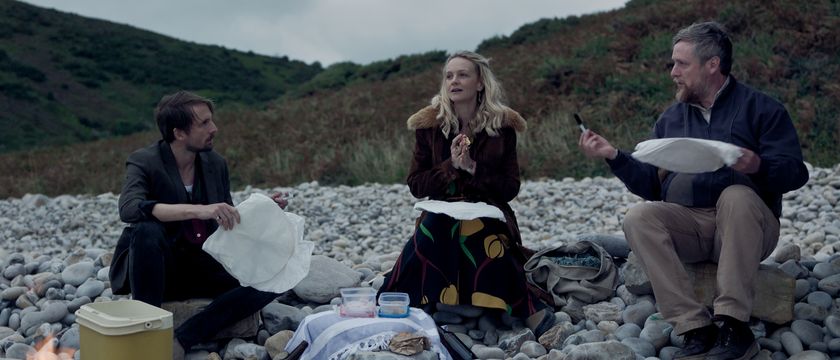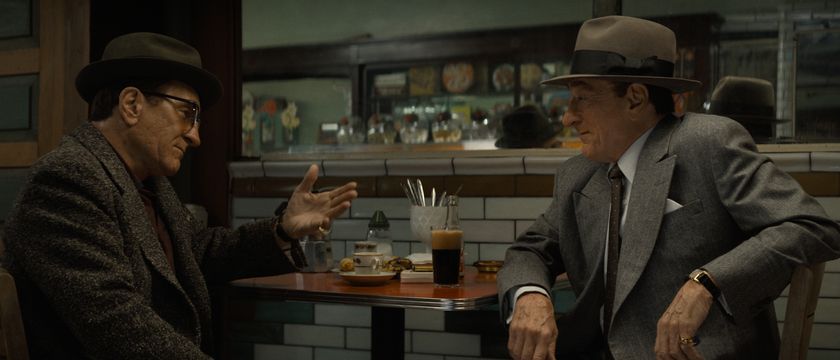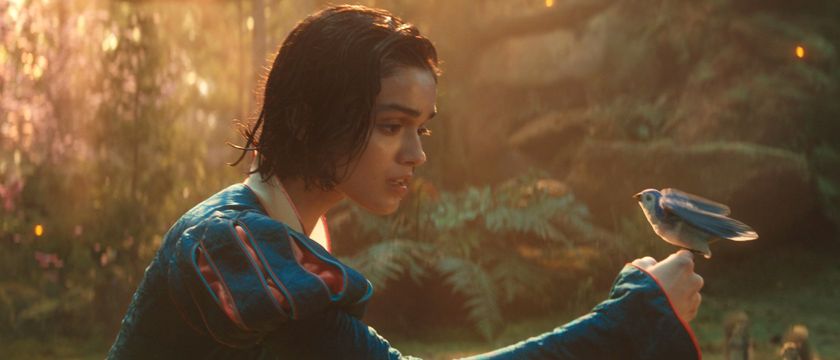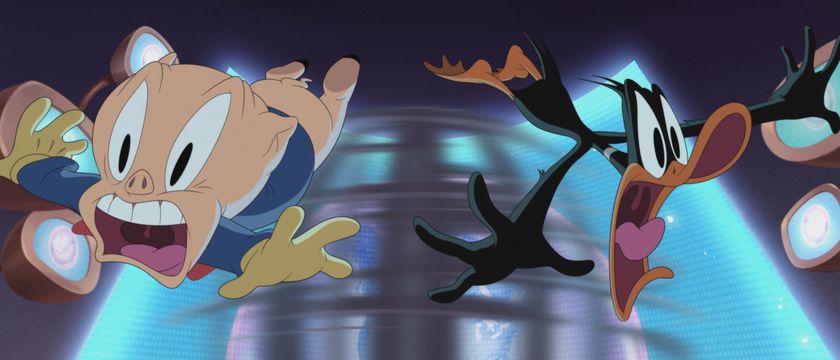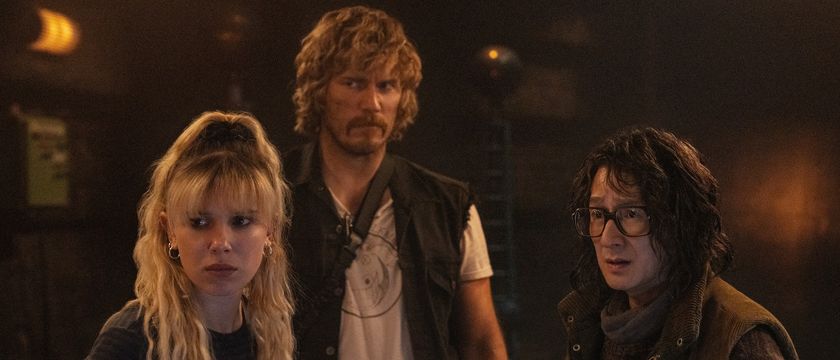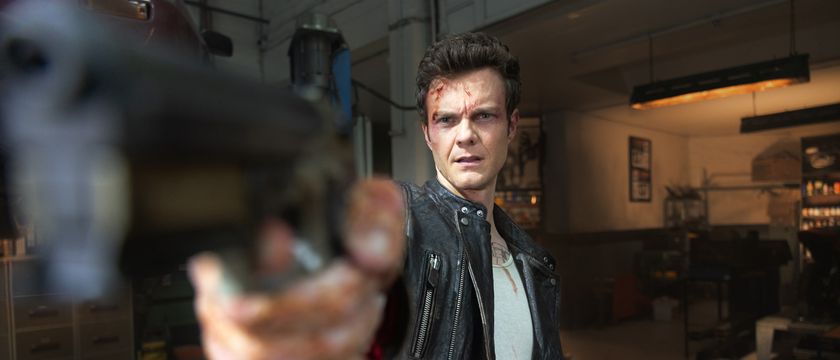At this point, the team-up film is Marvel Studios’ bread and butter. They set the world on fire back in 2012 with Joss Whedon’s The Avengers, and in the years since then have repeatedly orchestrated creative groupings and pairings that continue to demonstrate the tremendous fun and inventiveness that comes from bringing engaging, interesting characters together. They repeatedly set a high bar in this area, and are not only constantly reaching for it with each new project, but basically have the entire industry doing it, too. Now, however, we have Joe and Anthony Russo’s Captain America: Civil War, which succeeds in raising the bar higher than you’d think it could go.
Functioning as both a sequel to Captain America: The Winter Solider and The Avengers: Age of Ultron, the film is the most comprehensive Marvel Cinematic Universe chapter to date, and while that put a great deal on the plate of writers Christopher Markus and Stephen McFeely, the movie soars because the challenge is accepted and responded to in brilliant and entertaining fashion. Bringing together tremendous character dynamics; bold structure; an emotional narrative earned after years of story work; and spell-binding, fun action sequences, it’s everything a blockbuster should be.
Loosely based on the 2006-2007 Marvel Comics event series with which it partially shares a title, Captain America: Civil War picks up with its titular character (Chris Evans) working with his Avengers teammates – Falcon (Anthony Mackie), Scarlet Witch (Elizabeth Olsen), Vision (Paul Bettany), Black Widow (Scarlett Johansson) and War Machine (Don Cheadle) – to stop terror around the globe. After a mission in Africa winds up causing a tremendous deal of collateral damage, however, the team suddenly finds itself under scrutiny and the subject of controversy.
In order to put the Earth’s Mightiest Heroes in check, Secretary of State Thaddeus Ross (William Hurt) presents the team – as well as former members Tony Stark/Iron Man (Robert Downey Jr.) and Clint Barton/Hawkeye (Jeremy Renner) – the opportunity to sign the Sokovia Accords: a document named after the destroyed city from The Avengers: Age of Ultron that would force The Avengers to work under a United Nations panel that would determine exactly when and where the team would go into action. This idea is supported by some, including Tony, Vision, Black Widow and War Machine, but Captain America, Falcon and Scarlet Witch are not shy about their resentfulness of the idea.
The Sokovia Accords are the powder keg, and it winds up being Bucky Barnes/The Winter Solider (Sebastian Stan) who lights the fuse. A terrorist attack is pinned on Captain America’s best-friend-turned-assassin, and while Cap is instructed to leave the situation alone, it’s an order that he rebels against – turning him into a fugitive. All the while, a mysterious man named Helmut Zemo (Daniel Bruhl) operates in the shadows, searching for key information tied to Bucky’s past.
Captain America: Civil War features what is unquestionably the largest ensemble we’ve seen yet in a Marvel Studios movie, and while the narrative isn’t quite as strong as Captain America: The Winter Soldier, where the film makes up for it is in its tremendous character work – both in its understanding of who these pop culture figures are at their core, and having them play off of each other.
There’s no better example of the former in the film than Chadwick Boseman as the newly introduced T’challa, a.k.a. Black Panther, who is every bit as regal, intelligent, bold and passionate as the hero is on the page. And while they don’t have as much screen time as some of the other Avengers characters, there is nobody in their right mind who will walk away from the blockbuster not loving the absolutely brilliant return of Paul Rudd as Scott Lang/Ant-Man, and the long-awaited arrival of Tom Holland as Peter Parker/Spider-Man (who in just a handful of scenes fully encapsulates everything we love about the spectacular web-slinger and overwhelms us with excitement about the future of this iteration).
This film isn’t just about singular impressive performances, however: it’s an opportunity to see how these heroes both relate to each other and act when they are at odds, and the work done by the Russo brothers and Markus and McFeely is stunning. The headliner, of course, is the key conflict between Captain America and Iron Man - whose emotional battle will tear at the heartstrings of every fan like they’re watching their own parents go through a messy divorce – but the truth is that this is a feature where you can throw a rock and hit amazing character dynamics. As best friends of Cap, teammates, and former opponents, Falcon and Bucky have one of the most complex relationships in the movie, and it actually translates into a ton of laughs whenever they’re paired up. On the more serious side of the story, Wanda and Vision are wonderfully brought together, not only because of their relationship in the comics but also because there is a bond between them as “newborns” in the superhero realm. Somehow, everybody gets a moment with everybody, and yet Civil War has zero fat and never swings too far away from the central plot.
All of this couldn’t be pulled off within the basic superhero movie structure (heroes meet villain; heroes get beaten by villain; heroes recuperate; heroes defeat villain in large-scale showdown), so it’s a good thing that Captain America: Civil War burns that book in favor of a much more unconventional and risky approach. Without giving anything away, the film trades out a big, splashy, blockbuster finale (putting that sequence in the second act) in favor of something much more intimate and personal that works because it’s been earned over the last eight years of Marvel Studios storytelling, and the audience really cares about the characters. The movie takes some big swings, but that’s just how it’s able to knock it out of the park.
It’s easy to respect Captain America: Civil War because of the emotional and thoughtful approach it takes towards its characters instead of just having them punching and kicking each other – but the punching and kicking happens to be pretty phenomenal as well. In terms of action sequences, Marvel features have come a long way since the mediocre final battle in the original Iron Man, and while Joe and Anthony Russo blew us away with battles and set pieces in Captain America: The Winter Solider, their sequel ups the ante in every away. From the Avengers’ explosive mission at the start of the film to Cap and Winter Soldier’s attempt to escape from a building teeming with cops, it’s all intricately crafted and incredibly memorable. It should be noted, however, that every scene in the movie pales in comparison to the airport-set hero vs. hero battle in the second act – which I do not hesitate to call the greatest scene in the history of the comic book movie genre.
The Marvel Cinematic Universe on the whole is filled with great films and blockbuster gems, but between The First Avenger, The Winter Solider and now Civil War, it’s been firmly proven that they have a better grip on Captain America than any of their heroes, and it can be said with confidence that the three movies come together to create the greatest superhero trilogy of all time. The new movie is equally thrilling, fun, engaging, emotional, smart, and thought-provoking, and really everything you want from summer entertainment.

Eric Eisenberg is the Assistant Managing Editor at CinemaBlend. After graduating Boston University and earning a bachelor’s degree in journalism, he took a part-time job as a staff writer for CinemaBlend, and after six months was offered the opportunity to move to Los Angeles and take on a newly created West Coast Editor position. Over a decade later, he's continuing to advance his interests and expertise. In addition to conducting filmmaker interviews and contributing to the news and feature content of the site, Eric also oversees the Movie Reviews section, writes the the weekend box office report (published Sundays), and is the site's resident Stephen King expert. He has two King-related columns.
